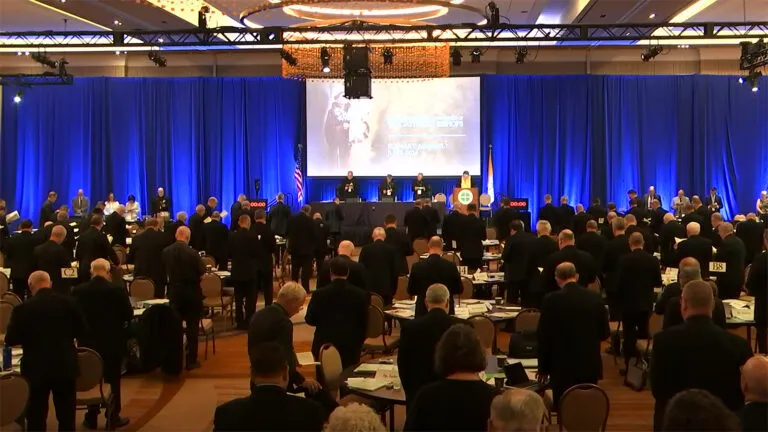The recent restructuring within the U.S. Conference of Catholic Bishops (USCCB), which includes layoffs and departmental shifts, has left partner organizations grappling with uncertainty about the future of justice and peace initiatives. The USCCB’s department of Justice, Peace & Human Development has undergone significant changes, impacting various collaborations crucial for advocacy and international outreach.
Impact of Restructuring on Partner Organizations
Steven Nabieu Rogers, executive director of the Africa Faith and Justice Network (AFJN), expressed concerns about the restructuring’s impact on their advocacy work. The AFJN, which bridges African and American churches, relied heavily on the USCCB’s support for critical programs and initiatives. Rogers highlighted the vital role the USCCB played in facilitating connections and advancing priorities such as convening African bishops from the Sahel region.
The USCCB confirmed the layoffs of four staff members from the Justice, Peace & Human Development department and six from the Catholic Campaign for Human Development (CCHD). The CCHD, known for its efforts in community organizing and poverty alleviation, was also restructured, moving out of the department to become part of a new secretariat.
Financial and Strategic Justifications
The USCCB cited financial constraints as the primary reason for the restructuring. The CCHD, funded through an annual collection, has experienced lower contributions recently. This financial shortfall, exacerbated by the pandemic, prompted discussions on the future of the CCHD and its associated programs.
However, former leaders and advocates have questioned the financial rationale behind the cutbacks. Ana Garcia-Ashley of the Gamaliel Network and Rogers argue that the mission of the church should drive its actions, not just financial considerations. They suggest that collections and funding streams have shown signs of recovery and emphasize the importance of continuing justice and peace programs.
Controversies and Criticisms
The restructuring has also drawn criticism from groups like the Lepanto Institute, led by Michael Hichborn. Hichborn has long criticized the CCHD for funding organizations allegedly promoting positions contrary to Catholic teachings. He views the layoffs as a necessary step to address these concerns and argues that the church’s resources should be focused on mission-critical work.
Bishop Thomas Paprocki of Springfield, Illinois, echoed some of these concerns, suggesting that a collection for Catholic education might be a better use of resources. Paprocki argued that strengthening Catholic education could address poverty more effectively than the CCHD.
Ongoing Support and Future Directions
Despite the restructuring, Garcia-Ashley and Rogers remain hopeful. They praise the former staff members of Justice, Peace & Human Development for their dedication and skill and express a desire to see the church continue its advocacy work.
Organizations like Network Lobby for Catholic Social Justice are adapting to the changes, with Ralph McCloud, a former CCHD director, joining their team. This move reflects ongoing efforts to sustain advocacy and community organizing efforts despite the organizational shifts.
Looking Ahead
The future of justice and peace programs within the USCCB remains uncertain. Rogers and Garcia-Ashley advocate for finding a replacement or alternative solutions to continue the critical work being done. They emphasize the need for the church to maintain its commitment to justice and advocacy, even as structural changes occur.
Key Takeaways
- The USCCB has restructured its Justice, Peace & Human Development department, resulting in layoffs and changes to the Catholic Campaign for Human Development.
- Partners like the Africa Faith and Justice Network are concerned about the impact on advocacy and international outreach.
- Financial constraints and controversies over CCHD’s funding have driven the restructuring, but some argue that mission-driven priorities should guide these decisions.
- Former leaders and advocacy groups are seeking ways to continue their work and are hopeful for future support from the church.
FAQ
1. What changes have occurred in the USCCB’s Justice, Peace & Human Development department? The department has undergone restructuring, resulting in the layoffs of four staff members and the reorganization of the Catholic Campaign for Human Development into a new secretariat.
2. Why were these changes made? The USCCB cited financial reasons, including lower contributions to the Catholic Campaign for Human Development, exacerbated by the pandemic.
3. How are partner organizations like the Africa Faith and Justice Network affected? These organizations rely on the USCCB for support in advocacy and international outreach. The restructuring has created uncertainty about the continuation of these critical programs.
4. What criticisms have been raised about the restructuring? Some critics argue that the financial justifications are insufficient and question the effectiveness of the CCHD. There is also concern that the church’s mission might be compromised.
5. What are the next steps for organizations affected by the restructuring? Affected organizations are seeking alternative solutions and support to continue their work. There is hope for finding replacements or adjustments to maintain advocacy and justice programs.


